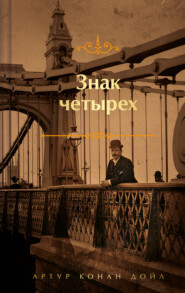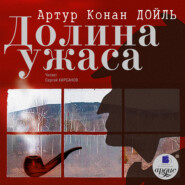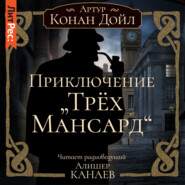По всем вопросам обращайтесь на: info@litportal.ru
(©) 2003-2024.
✖
The Green Flag, and Other Stories of War and Sport
Настройки чтения
Размер шрифта
Высота строк
Поля
Colonel von Gramm, of the 24th Posen Infantry, had suffered severely during this new development. He commanded in the little Norman town of Les Andelys, and his outposts stretched amid the hamlets and farmhouses of the district round. No French force was within fifty miles of him, and yet morning after morning he had to listen to a black report of sentries found dead at their posts, or of foraging parties which had never returned. Then the colonel would go forth in his wrath, and farmsteadings would blaze and villages tremble; but next morning there was still that same dismal tale to be told. Do what he might, he could not shake off his invisible enemies. And yet it should not have been so hard, for, from certain signs in common, in the plan and in the deed, it was certain that all these outrages came from a single source.
Colonel von Gramm had tried violence, and it had failed. Gold might be more successful. He published it abroad over the countryside that 500frs. would be paid for information. There was no response. Then 800frs. The peasants were incorruptible. Then, goaded on by a murdered corporal, he rose to a thousand, and so bought the soul of Francois Rejane, farm labourer, whose Norman avarice was a stronger passion than his French hatred.
"You say that you know who did these crimes?" asked the Prussian colonel, eyeing with loathing the blue-bloused, rat-faced creature before him.
"Yes, colonel."
"And it was – ?"
"Those thousand francs, colonel – "
"Not a sou until your story has been tested. Come! Who is it who has murdered my men?"
"It is Count Eustace of Chateau Noir."
"You lie!" cried the colonel, angrily. "A gentleman and a nobleman could not have done such crimes."
The peasant shrugged his shoulders. "It is evident to me that you do not know the count. It is this way, colonel. What I tell you is the truth, and I am not afraid that you should test it. The Count of Chateau Noir is a hard man, even at the best time he was a hard man. But of late he has been terrible. It was his son's death, you know. His son was under Douay, and he was taken, and then in escaping from Germany he met his death. It was the count's only child, and indeed we all think that it has driven him mad. With his peasants he follows the German armies. I do not know how many he has killed, but it is he who cut the cross upon the foreheads, for it is the badge of his house."
It was true. The murdered sentries had each had a saltire cross slashed across their brows, as by a hunting-knife. The colonel bent his stiff back and ran his forefinger over the map which lay upon the table.
"The Chateau Noir is not more than four leagues," he said.
"Three and a kilometre, colonel."
"You know the place?"
"I used to work there."
Colonel von Gramm rang the bell.
"Give this man food and detain him," said he to the sergeant.
"Why detain me, colonel? I can tell you no more."
"We shall need you as guide."
"As guide? But the count? If I were to fall into his hands?
Ah, colonel – "
The Prussian commander waved him away. "Send Captain Baumgarten to me at once," said he.
The officer who answered the summons was a man of middle-age, heavy-jawed, blue-eyed, with a curving yellow moustache, and a brick-red face which turned to an ivory white where his helmet had sheltered it. He was bald, with a shining, tightly stretched scalp, at the back of which, as in a mirror, it was a favourite mess-joke of the subalterns to trim their moustaches. As a soldier he was slow, but reliable and brave. The colonel could trust him where a more dashing officer might be in danger.
"You will proceed to Chateau Noir to-night, captain," said he. "A guide has been provided. You will arrest the count and bring him back. If there is an attempt at rescue, shoot him at once."
"How many men shall I take, colonel?"
"Well, we are surrounded by spies, and our only chance is to pounce upon him before he knows that we are on the way. A large force will attract attention. On the other hand, you must not risk being cut off."
"I might march north, colonel, as if to join General Goeben. Then I could turn down this road which I see upon your map, and get to Chateau Noir before they could hear of us. In that case, with twenty men – "
"Very good, captain. I hope to see you with your prisoner to-morrow morning."
It was a cold December night when Captain Baumgarten marched out of Les Andelys with his twenty Poseners, and took the main road to the north west. Two miles out he turned suddenly down a narrow, deeply rutted track, and made swiftly for his man. A thin, cold rain was falling, swishing among the tall poplar trees and rustling in the fields on either side. The captain walked first with Moser, a veteran sergeant, beside him. The sergeant's wrist was fastened to that of the French peasant, and it had been whispered in his ear that in case of an ambush the first bullet fired would be through his head. Behind them the twenty infantrymen plodded along through the darkness with their faces sunk to the rain, and their boots squeaking in the soft, wet clay. They knew where they were going, and why, and the thought upheld them, for they were bitter at the loss of their comrades. It was a cavalry job, they knew, but the cavalry were all on with the advance, and, besides, it was more fitting that the regiment should avenge its own dead men.
It was nearly eight when they left Les Andelys. At half-past eleven their guide stopped at a place where two high pillars, crowned with some heraldic stonework, flanked a huge iron gate. The wall in which it had been the opening had crumbled away, but the great gate still towered above the brambles and weeds which had overgrown its base. The Prussians made their way round it and advanced stealthily, under the shadow of a tunnel of oak branches, up the long avenue, which was still cumbered by the leaves of last autumn. At the top they halted and reconnoitred.
The black chateau lay in front of them. The moon had shone out between two rain-clouds, and threw the old house into silver and shadow. It was shaped like an L, with a low arched door in front, and lines of small windows like the open ports of a man-of-war. Above was a dark roof, breaking at the corners into little round overhanging turrets, the whole lying silent in the moonshine, with a drift of ragged clouds blackening the heavens behind it. A single light gleamed in one of the lower windows.
The captain whispered his orders to his men. Some were to creep to the front door, some to the back. Some were to watch the east, and some the west. He and the sergeant stole on tiptoe to the lighted window.
It was a small room into which they looked, very meanly furnished. An elderly man, in the dress of a menial, was reading a tattered paper by the light of a guttering candle. He leaned back in his wooden chair with his feet upon a box, while a bottle of white wine stood with a half-filled tumbler upon a stool beside him. The sergeant thrust his needle-gun through the glass, and the man sprang to his feet with a shriek.
"Silence, for your life! The house is surrounded, and you cannot escape. Come round and open the door, or we will show you no mercy when we come in."
"For God's sake, don't shoot! I will open it! I will open it!" He rushed from the room with his paper still crumpled up in his hand. An instant later, with a groaning of old locks and a rasping of bars, the low door swung open, and the Prussians poured into the stone-flagged passage.
"Where is Count Eustace de Chateau Noir?"
"My master! He is out, sir."
"Out at this time of night? Your life for a lie!"
"It is true, sir. He is out!"
"Where?"
"I do not know."
"Doing what?"
"I cannot tell. No, it is no use your cocking your pistol, sir. You may kill me, but you cannot make me tell you that which I do not know."
"Is he often out at this hour?"
"Frequently."
"And when does he come home?"
"Before daybreak."
Captain Baumgarten rasped out a German oath. He had had his journey for nothing, then. The man's answers were only too likely to be true. It was what he might have expected. But at least he would search the house and make sure. Leaving a picket at the front door and another at the back, the sergeant and he drove the trembling butler in front of them – his shaking candle sending strange, flickering shadows over the old tapestries and the low, oak-raftered ceilings. They searched the whole house, from the huge stone-flagged kitchen below to the dining-hall on the second floor, with its gallery for musicians, and its panelling black with age, but nowhere was there a living creature. Up above, in an attic, they found Marie, the elderly wife of the butler; but the owner kept no other servants, and of his own presence there was no trace.
It was long, however, before Captain Baumgarten had satisfied himself upon the point. It was a difficult house to search. Thin stairs, which only one man could ascend at a time, connected lines of tortuous corridors. The walls were so thick that each room was cut off from its neighbour. Huge fireplaces yawned in each, while the windows were 6ft. deep in the wall. Captain Baumgarten stamped with his feet, tore down curtains, and struck with the pommel of his sword. If there were secret hiding-places, he was not fortunate enough to find them.
"I have an idea," said he, at last, speaking in German to the sergeant. "You will place a guard over this fellow, and make sure that he communicates with no one."

















